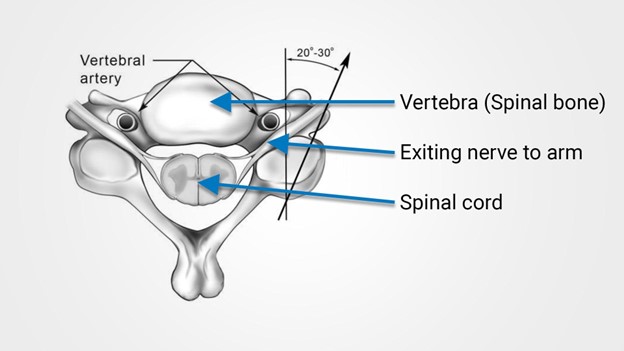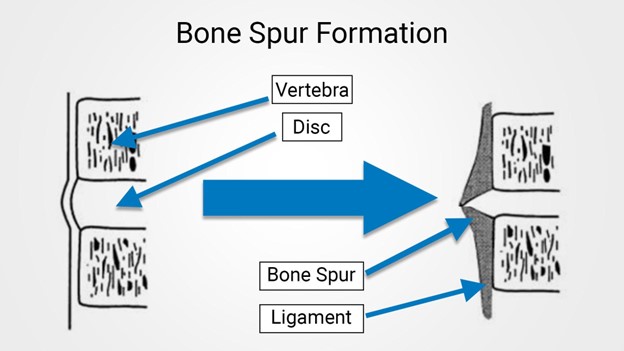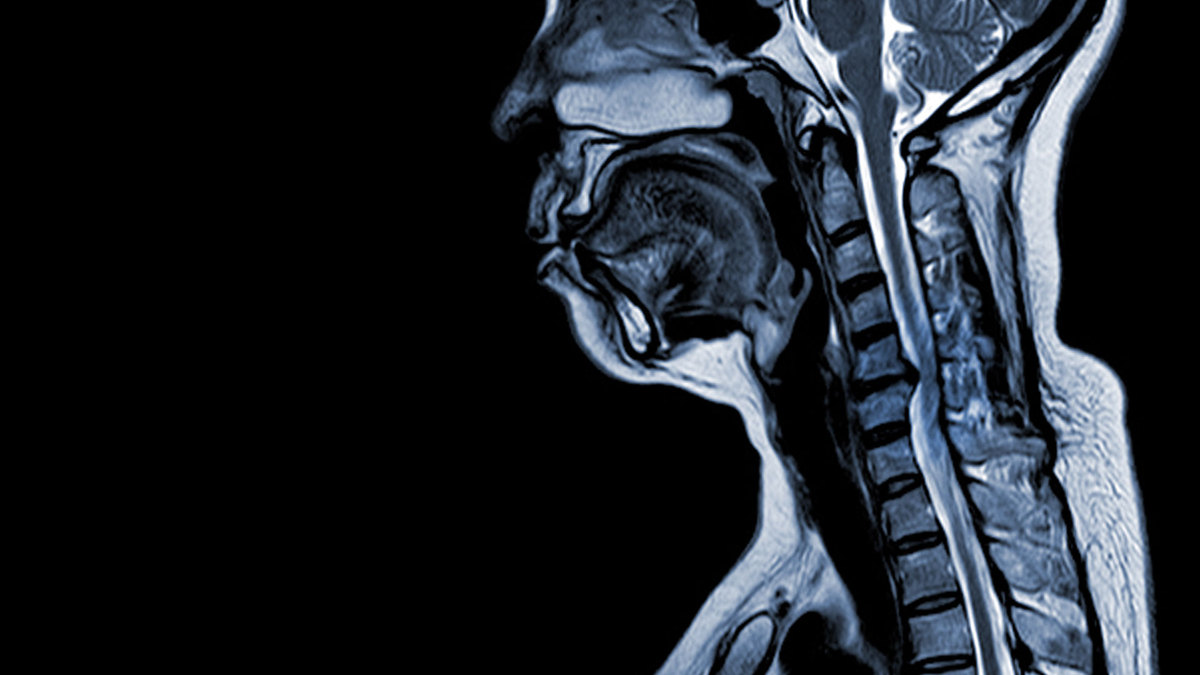Exploring Spinal Cord Compression
Spinal cord compression results when the internal canal of the cervical or thoracic spine is compromised, placing pressure on the spinal cord. There are several different disease processes that can compromise the spinal cord’s channel, including trauma, tumors, infections or, most commonly, degenerative changes of the spine. The mere presence of spinal cord compression, however, is NOT an emergency. It is essential to correlate the radiographic findings of spinal cord compression with the patient’s clinical and neurological presentation.
Patients may be asymptomatic or experience a wide variety of symptoms that depend on the location of spinal cord compression. Spinal cord compression, however, can lead to significant disability, so it is important that you see a specialist if you are experiencing any symptoms.

Spinal Cord Anatomy
The spinal cord is the bundle of nerves connecting the brain to the rest of the body, transmitting information that allows us to move our extremities, perceive sensation, and control bodily functions. The spinal cord travels through a channel, called the spinal canal, created by the bones of the spine. The spinal canal is created by the stacking of the bones of the spine on top of each other, forming the spinal column. This bony channel protects the spinal cord, but also leads to the condition that puts pressure on the spinal cord since the bones of the spine are not flexible. Any structure of sufficient size invading the spinal canal will place pressure on the spinal cord.

What is the Condition of Spinal Cord Compression?
Myelopathy is the clinical term used to describe problems related to the spinal cord. The most common reason for a myelopathy is a condition that put pressure on the spinal cord, such as degenerative disease of the spine. As we get older, wear and tear of the spine causes the discs to deteriorate. The outer wall of the disc weakens, leading to collapse and escape of the internal contents, a herniated disc. Bone spurs are bone growths that form as the surrounding ligaments are separated from the vertebrae. The bone spurs invade and narrow the spinal cord’s channel and is the most common condition that puts pressure on the spinal cord.
Symptoms of Spinal Cord Compression
Symptoms of spinal cord compression, aka myelopathy, are due the inability of the spinal cord to properly send and transmit information to and from the body and include:
- Sensory changes, such as tingling, or numbness – usually in the hands and arms but can affect torso and legs if severe
- Poor coordination and clumsiness – such as difficulty with buttoning shirts
- Arm, hand, or leg weakness
- Difficulties with balance
- A sense of urgency when having to urinate
When the myelopathy is due to degenerative changes of the spinal column, additional symptoms may include:
- Pain
- Stiffness
- Decreased range of neck movement
It is important to remember that pain and weakness do not always occur when patients present with spinal cord compression, even when there are degenerative changes of the spinal column.

How do we Diagnose Spinal Cord Compression
The most important test to determine if a patient is suffering from spinal cord compression is the history and clinical exam. A spine specialist needs to ask the appropriate questions and perform a detailed neurological exam to identify the symptoms of spinal cord compression.
If there is a suspicion for a myelopathy, the next step is to obtain detailed imaging of the spine. The most important image to confirm spinal cord compression is an MRI of the spine. CT scanning can also be performed but will not provide the same details as an MRI.
Why is Spinal Cord Compression an Emergency?
Symptoms of spinal cord compression can progress rapidly or take years to develop. Regardless of the cause, the most important factor is for both the patient and physician to identify the presence of symptoms and whether symptoms are getting worse. If the symptoms are rapidly progressing, the condition requires more immediate treatment and may be considered an emergency. This however is usually the exception, not the rule!
It is extremely important that patients understand that not all cases of spinal cord compression cause symptoms therefore the presence of spinal cord compression does not always have to be treated.
It's time to get back to doing what you love.
Spinal Cord Compression Treatment
As opposed to treatments to reduce pain, such as steroid injections, the focus of treatment for spinal cord compression is to preserve neurological function. Steroid injections are intended to relieve pain and reduce swelling of nerves, not to address loss of neurological function from spinal cord compression. It is also important to remember that a steroid injection in the presence of pressure on the spinal cord can lead to catastrophic complications. There is also no role for radiation therapy when treating spinal cord compression.
For the majority of patients with symptoms of spinal cord compression, surgery is the most effective treatment. There are a number of different operations that can be performed to address pressure on the spinal cord. It is essential that you consult with an expert familiar with the surgical alternatives.
There is no surgical standard of care for the treatment of spinal cord compression. The best surgical option depends on the imaging, your surgeon’s ability, what the medical literature supports, and the patient’s preferences.
It is imperative that when choosing your surgeon, they have an extensive knowledge regarding your condition and are experienced in all of the various surgical options.
Recovery after Spinal Cord Compression Treatment
The immediate recovery from surgery is dependent on which procedure is performed.
From a neurological perspective, recovery is dependent on the severity of neurological complaints, how fast these complaints developed, and how long they have existed. Patients with severe symptoms that rapidly progressed tend to be left with some permanent nerve damage. Most people, however, will experience a significant recovery if the condition is addressed in a timely manner.
Often, physical therapy will be needed after surgery. Physical therapy not only can help improve and stabilize neurological deficits, but also improve mobility and range of spinal motion.
Take Home Message Regarding Spinal Cord Compression
Spinal cord compression can be very serious and lead to significant loss of function. The mere presence of spinal cord compression however does not always need to be treated and is not, by itself, an emergency. It is important to correlate the patient’s presentation to the imaging.
If you are experiencing any symptoms, it is important that you see your doctor to get them checked.
If you are suffering from or been diagnosed with spinal cord compression, the surgeons of Neurosurgeons of New Jersey are nationally recognized spine specialists in the evaluation and treatment of conditions leading to spinal cord compression and are waiting to help.

About Dr. Michael G. Kaiser
Dr. Michael G. Kaiser is a nationally recognized neurosurgeon in North Jersey and is a proud member of Neurosurgeons of New Jersey, practicing out of their Ridgewood office conveniently located on East Ridgewood Avenue. Dr. Kaiser specializes in complex and minimally invasive spine surgeries.






